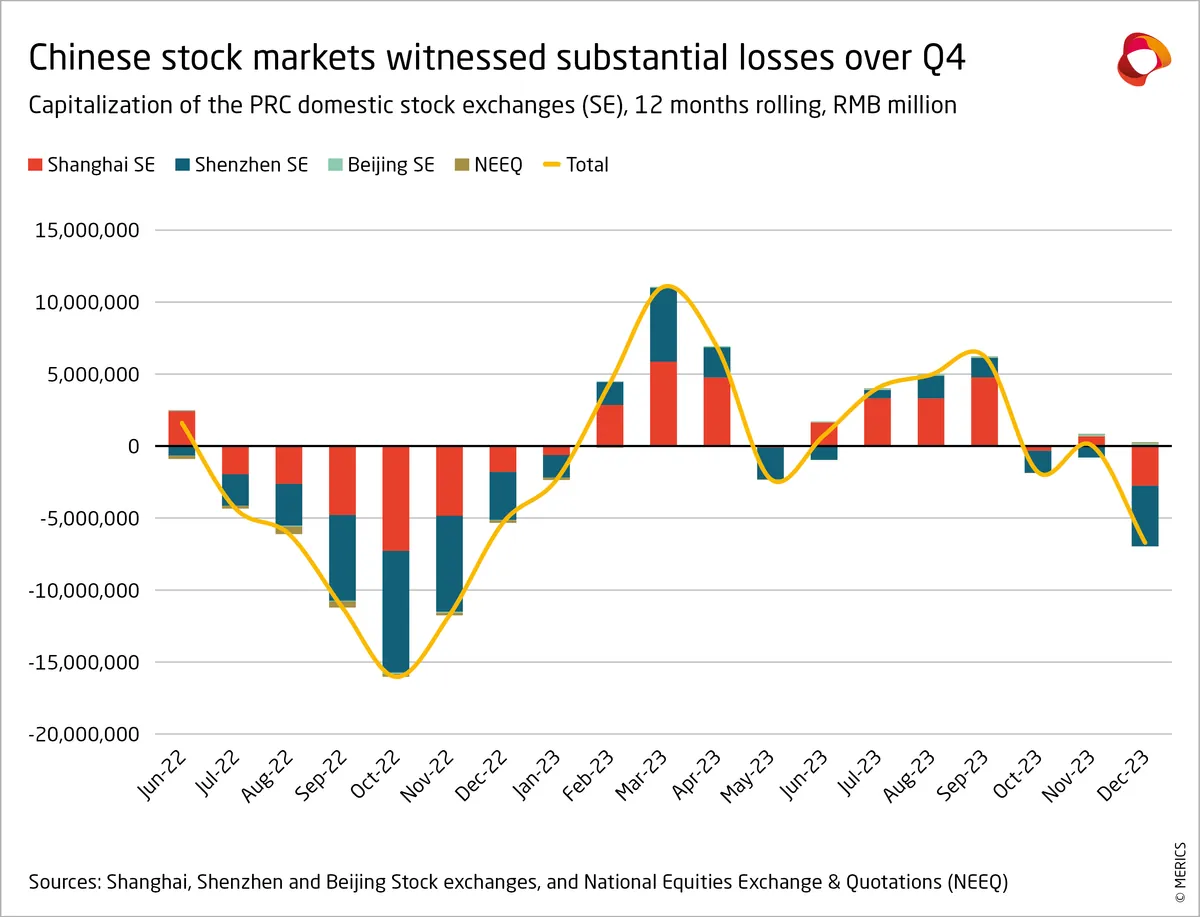China's Services Sector Growth Slows Amid Economic Challenges
China's services PMI dropped to 50.3 in September 2024, indicating sluggish growth. Despite export improvements, weak domestic demand and economic uncertainties persist, prompting government action.

In September 2024, China's services sector experienced a deceleration in growth, as indicated by the Caixin/S&P Global services purchasing managers' index (PMI). The index fell to 50.3 from 51.6 in August, marking its lowest point since September 2023. This decline highlights the ongoing economic challenges faced by the world's second-largest economy.
The PMI, an economic indicator derived from monthly surveys of private sector companies, reveals that while the services sector is still expanding, the pace has significantly slowed. A reading above 50 indicates growth, while below 50 signifies contraction. The services sector, which accounts for more than half of China's GDP and employs the majority of its workforce, plays a crucial role in the country's economic landscape.
Despite the overall slowdown, there were some positive signs. New business inflows from abroad accelerated at the fastest pace in three months, indicating a potential boost from international trade. This aligns with China's position as the world's largest exporter and second-largest importer of goods.
Employment in the services sector expanded, reversing the decline observed in August. This expansion was partly due to capacity pressures resulting from higher new business, which contributed to an accumulation of backlogged work. However, the pace of new business growth decelerated to its slowest in 11 months, reflecting persistent challenges in domestic demand.

Input costs increased due to higher material, labor, and energy expenses. Despite these rising costs, firms showed reluctance to raise prices, potentially impacting their profit margins. This pricing strategy may be influenced by the government's efforts to address income inequality and promote "common prosperity."
Overall business confidence fell to its lowest level since March 2020, with some firms expressing concerns about increasing competition and the global economic outlook. This decline in optimism is particularly noteworthy given China's ambitious GDP growth target of around 5% for 2024.
The Caixin/S&P Global Composite PMI, which combines both manufacturing and services sectors, also decreased to 50.3 in September, down from August's 51.6. This comprehensive indicator suggests that the broader economy is facing headwinds.
"Across the board, the latest macroeconomic data have fallen short of market expectations. Insufficient effective domestic demand remains a prominent issue, with significant pressure on employment and weak optimism constraining people's willingness and ability to spend."
In response to these economic challenges, China's top leaders recently acknowledged the need for fresh policies to stimulate growth more forcefully. They emphasized the importance of halting declines in the property market, which has been a significant driver of economic growth, accounting for about 30% of GDP.
The People's Bank of China (PBOC), the country's central bank, introduced its most aggressive monetary easing measures since the pandemic in late September 2024. These actions are part of the government's broader strategy to address economic headwinds and maintain stability.
As China navigates these economic challenges, it continues to pursue long-term strategies such as the Belt and Road Initiative and the "Made in China 2025" plan. These initiatives aim to enhance regional connectivity, upgrade manufacturing capabilities, and position the country for sustainable growth in the coming years.
The current economic situation in China reflects the complex interplay of domestic and international factors. While the services sector growth has slowed, the government's proactive approach and the country's economic resilience suggest that further policy support and adjustments are likely in the near future.


































